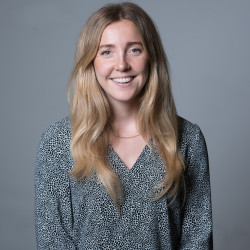By Ellie Cawthera
October 11, 2022
Time to read: 2 minutes
The MRC London Institute of Medical Science have recently welcomed Dr Alice Francis to take on the role of Roving Researcher. The Roving Researcher scheme aims to provide support to LMS researchers going on leave for long periods of time so that their science can continue.
 Inspired by a similar scheme run at the Babraham Institute, Alice, as the Roving Researcher, will be working across two to three labs at any one time covering important scientific work that wouldn’t otherwise take place due to staff absences such as maternity leave and long-term sick leave.
Inspired by a similar scheme run at the Babraham Institute, Alice, as the Roving Researcher, will be working across two to three labs at any one time covering important scientific work that wouldn’t otherwise take place due to staff absences such as maternity leave and long-term sick leave.
“When people take time away from the lab, it can impact the momentum of the science. This scheme aims to minimise that impact on both the lab as a whole as well as those taking the time off. It means their work can continue to progress in their absence and we hope that many postdoctoral scientists’ projects will significantly benefit from the continuation of their research,” says Alexis Barr, Dr Michelle Percharde and Dr Toby Warnecke who set up the scheme.
There are many reasons for long spells away, but the most common of these is maternity leave which means careers of talented female scientists are disproportionately affected. Enabling their science to continue helps to mitigate this and this will be a significant step towards reducing the gender disparity in senior positions in science.
“I am excited about this new scheme and privileged to be pioneering it for the LMS.”
Dr Alice Francis, Roving Researcher
“I am loving being “the Rover” already. It is diverse and full of learning opportunities, with my role being to provide support to research groups where needed and maintain project momentum if a lab member is on long-term leave. I am excited about this new scheme and privileged to be pioneering it for the LMS. I am so grateful to the friendly people of the LMS for making me feel welcome and part of this incredible institute!” said Alice.
Alice completed her PhD within the National Heart and Lung Institute at Imperial, supported by a British Heart Foundation studentship to investigate the sex differences in heart disease with a particular interest in the role of menopause and oestrogens in cardiac physiology. Alice joins us now after completing a postdoc position at the University of Western Australia, investigating potential therapies for hypertrophic cardiomyopathy.
This blog was written by Ellie Cawthera